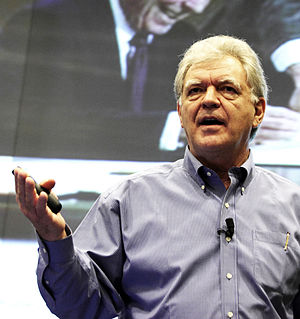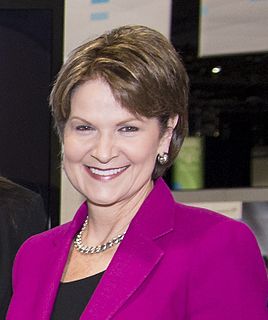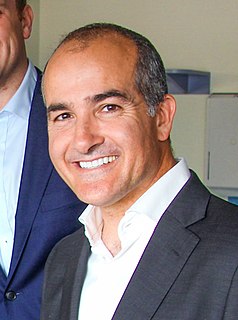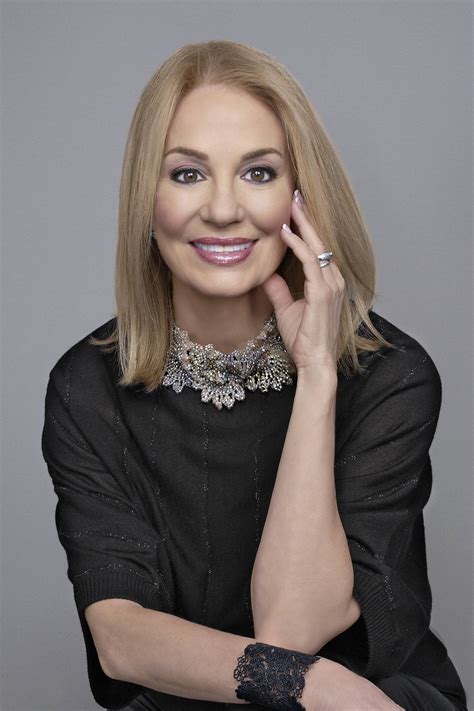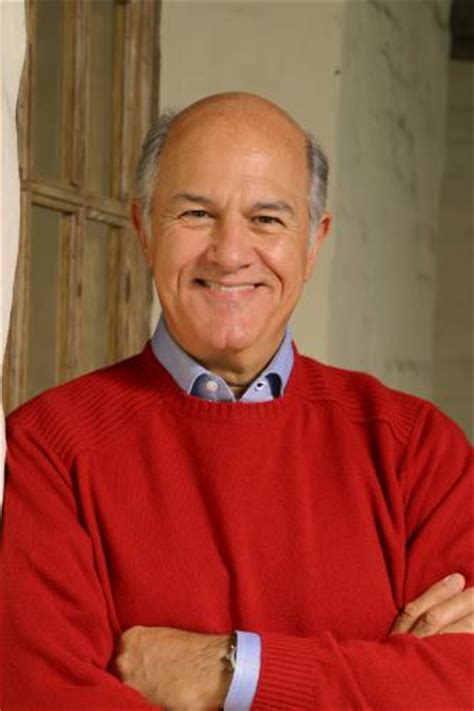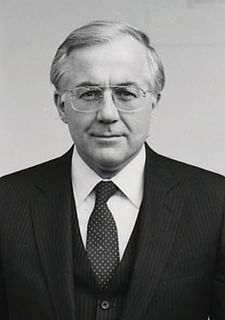A Quote by George Kohlrieser
A hallmark of high performance leaders is the ability to influence others through all levels and types of communication, from simple interactions to difficult conversations and more complex conflicts, in order to achieve greater team and organizational alignment. High performing leaders are able to unite diverse team members by building common goals and even shared emotions by engaging in powerful and effective dialogue.
Quote Topics
Ability
Able
Achieve
Alignment
Building
Common
Common Goal
Communication
Complex
Conflicts
Conversations
Dialogue
Difficult
Difficult Conversations
Diverse
Effective
Emotions
Engaging
Even
Goals
Greater
Hallmark
High
Influence
Interactions
Leaders
Levels
Members
More
Order
Organizational
Others
Performance
Performing
Powerful
Shared
Simple
Team
Team Member
Through
Types
Unite
Related Quotes
The team you belong to must come ahead of the team you lead: this is putting team results (e.g., organizational needs) ahead of individual agendas (e.g., the team or division you lead, your ego, your need for recognition, your career development, etc.) Confidentiality is respected downward more than it is respected upward. Organizational alignment is a direct result of this hierarchy (if it were the other way around, organizational alignment would be very difficult to achieve).
Leaders must exemplify integrity and earn the trust of their teams through their everyday actions. When you do this, you set high standards for everyone at your company. And when you do so with positive energy and enthusiasm for shared goals and purpose, you can deeply connect with your team and customers.
I have participated as a leader in many organizations where the leadership culture was just mean - ugly, where competitiveness, and destructive relationships stymied progress. There should be healthy tension and candid debate, but leadership teams need to practice communication, relationship building, emotional intelligence, and be aligned around common purpose to achieve organizational success. Senior leaders, chief executive officers, others need to ensure they are fostering the right environment for leadership otherwise all of that ugliness will trickle through the organization.
All of great leaders evidence four basic qualities that are central to their ability to lead: adaptive capacity, the ability to engage others through shared meaning, a distinctive voice, and unshakeable integrity. These four qualities mark all exemplary leaders, whatever their age, gender, ethnicity, or race.
Leaders strengthen credibility by demonstrating that they are not in it for themselves, instead they have the interests of the institution, department, or team and its constituents at heart. Being a servant may not be what many leaders had in mind when they chose to take responsibility for the vision and direction of their organization or team - but serving others is the most glorious and rewarding of all leadership tasks.
There are plenty of teams in every sport that have great players and never win titles. Most of the time, those players aren't willing to sacrifice for the greater good of the team. The funny thing is, in the end, their unwillingness to sacrifice only makes individual goals more difficult to achieve. One thing I believe to the fullest is that if you think and achieve as a team, the individual accolades will take care of themselves. Talent wins games, but teamwork and intelligence win championships.
